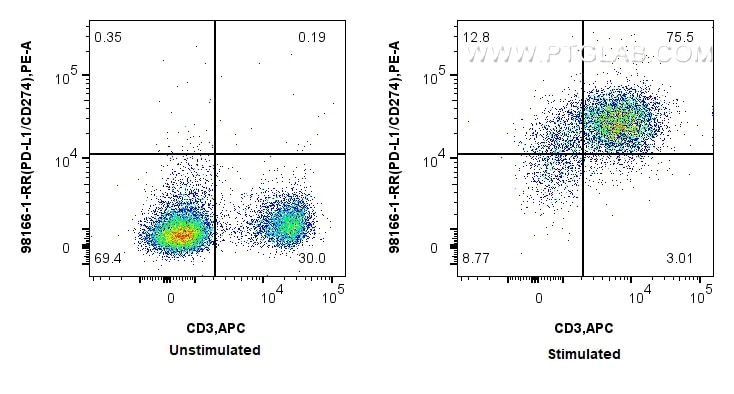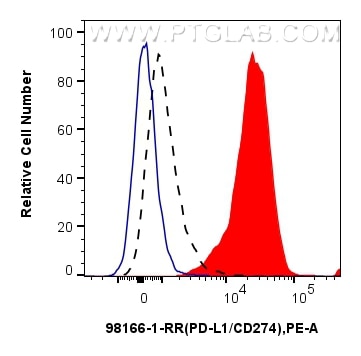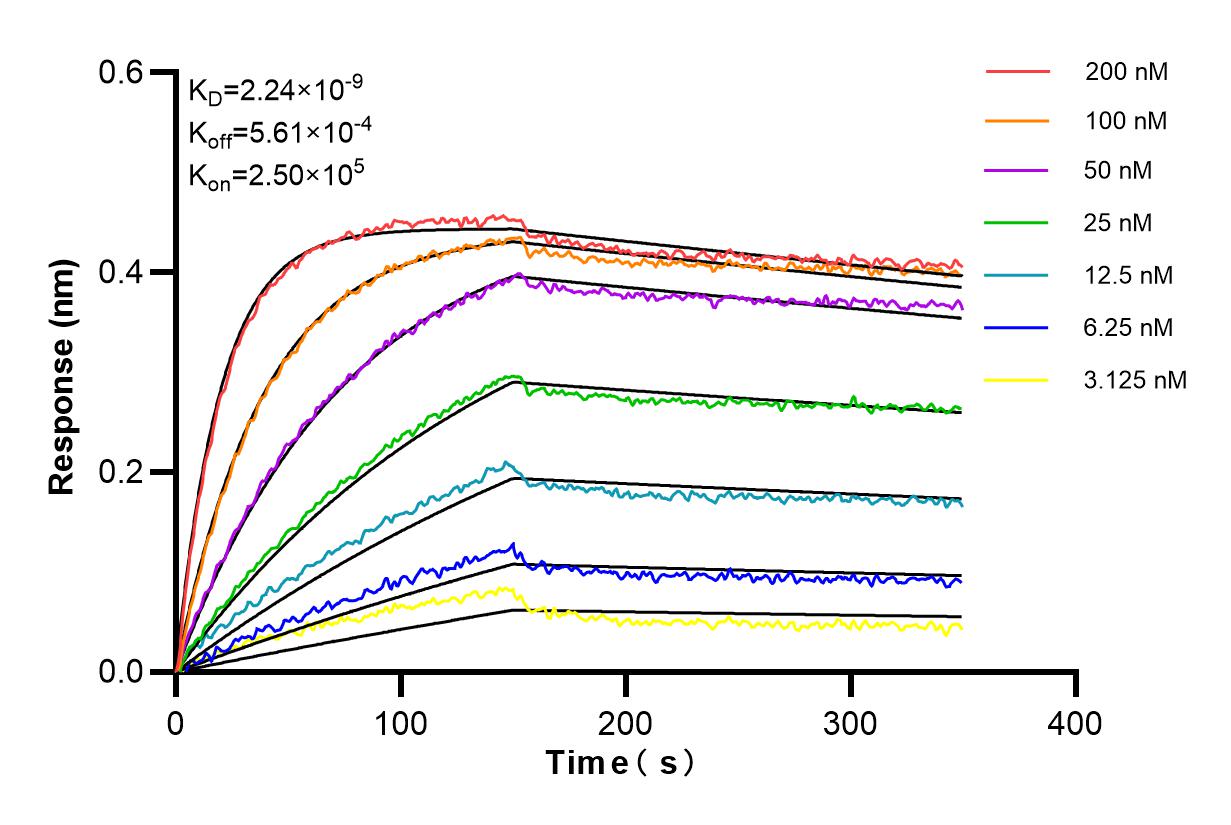Tested Applications
| Positive FC detected in | anti-CD3/CD28 treated mouse splenocytes |
Recommended dilution
| Application | Dilution |
|---|---|
| This reagent has been tested for flow cytometric analysis. It is recommended that this reagent should be titrated in each testing system to obtain optimal results. | |
| Sample-dependent, Check data in validation data gallery. | |
Product Information
98166-1-RR targets PD-L1/CD274 in FC applications and shows reactivity with mouse samples.
| Tested Reactivity | mouse |
| Host / Isotype | Rabbit / IgG |
| Class | Recombinant |
| Type | Antibody |
| Immunogen | Recombinant protein Predict reactive species |
| Full Name | CD274 antigen |
| Calculated Molecular Weight | 33 kDa |
| GenBank Accession Number | NM_021893.3 |
| Gene Symbol | PD-L1 |
| Gene ID (NCBI) | 60533 |
| RRID | AB_3672309 |
| Conjugate | Unconjugated |
| Form | Liquid |
| Purification Method | Protein A purfication |
| UNIPROT ID | Q9EP73 |
| Storage Buffer | PBS with 0.09% sodium azide , pH 7.3 |
| Storage Conditions | Store at 2 - 8°C. Stable for one year after shipment. |
Background Information
Programmed cell death ligand 1 (PD-L1, CD274, or B7-H1), is the first member of B7 family to be discovered. B7 family molecules are type I transmembrane proteins belonging to the immunoglobulin superfamily. In concert with their CD28 family receptors, the B7s are key regulators of the adaptive immune response. PD-L1 is suggested as a negative regulator of T and B cell, and plays important role in mediating tolerance of lymphocytes to self-antigens. It is also involved in the costimulatory signal, essential for T-cell proliferation and production of IL10 and IFNG, in an IL2-dependent and a PD-1-independent manner.
Protocols
| Product Specific Protocols | |
|---|---|
| FC protocol for PD-L1/CD274 antibody 98166-1-RR | Download protocol |
| Standard Protocols | |
|---|---|
| Click here to view our Standard Protocols |







